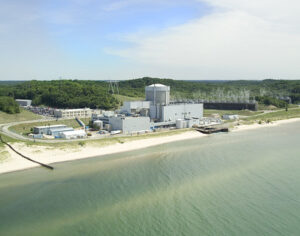Danville Community College in Danville, VA announced that its spring enrollment has increased by 6%. Increasing community college enrollment is a relative rarity these days. Nationally, community college enrollment has declined by 25% since 2017, according to enrollment data that the National Student Clearinghouse Research Center collects.
So, how has Danville Community College done it? By creating and investing in new academic programs. It appears new academic programs can attract new students in noticeable numbers. DCC’s new programs did not represent a rehashing of its course catalog. Instead, the community college delivered entirely new programs in high demand fields. Additionally, the college has developed a stronger student support strategy that includes academic advising, financial aid assistance and tutoring. As it turns out, removing barriers helps students enter and remain in college.
DCC isn’t the only community college that is seeing enrollment increases based on new programs. Metropolitan Community College in Omaha, NE is attracting students with a new “freight farm” program. The program focuses on alternative food production in urban areas. Freight farms are fully enclosed hydroponic farming systems that enable growers to produce as much as 6 tons of fresh produce year-round in a modified shipping container.
The container controls the circulation of water, light, and heat inside. Special vertical growing racks are outfitted with a foam-based growing medium. Water drips down from the top of the container and collects at the bottom, where it can be recirculated as needed. Growing food in this way significantly reduces the amount of water needed for farming operations. Virtually anything that grows in soil can also grow in a freight farm. The idea of urban farming is not new, but interest in it is growing because it represents a sustainable way to counter “food deserts” that have formed in large cities.
Community college enrollment increased slightly last term
Urban farming programs use fewer resources to produce food than traditional farming does. Additionally, systems like freight farms can reduce damage to crops from drought, weather, insects, and other hazards of traditional farming. In addition, freight farms use only about one-third of the water that traditional, soil-based farming does.
These programs are ideal for community college delivery. Freight farms use a standard sized shipping container and can support multiple crops at one time. In addition, a freight farm can operate all year long. A single freight farm costs about $150,000 and can generate $100,000-$120,000 in revenue per year. Ideally, a degree program would combine agricultural classes with business classes.
This is the kind of program that will attract new students. Of course, it would have to be built from the ground up, but there’s a lot of upside for relatively low investment.
Photo Credit: Caroline Katsiroubas (Freight Farms)












